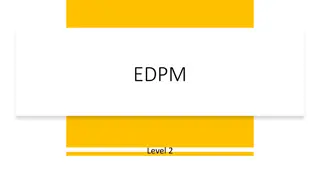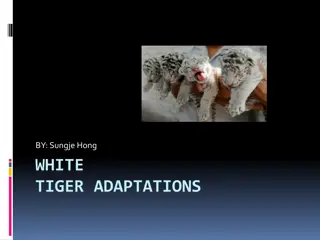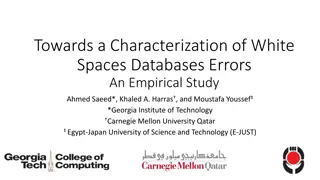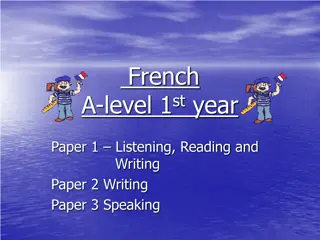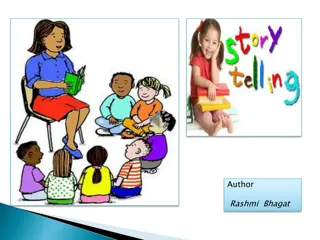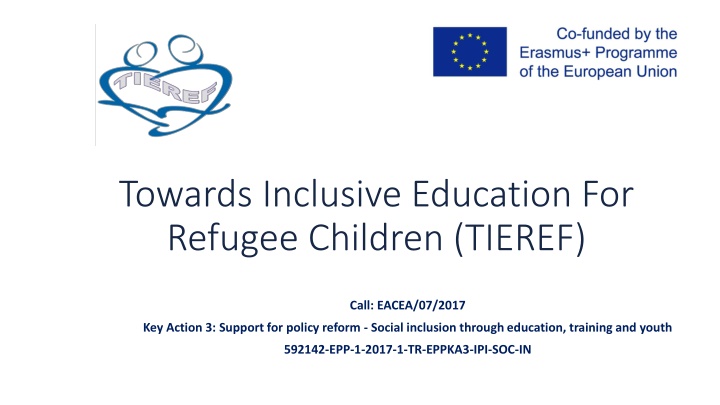
Legislation for Refugee Education in Greece - Reception Classes and Integration Policies
Explore the legislation and policies regarding refugee education in Greece, focusing on reception classes for children with inadequate Greek language skills. Learn about the integration efforts and support structures in place to facilitate their educational journey.
Download Presentation

Please find below an Image/Link to download the presentation.
The content on the website is provided AS IS for your information and personal use only. It may not be sold, licensed, or shared on other websites without obtaining consent from the author. If you encounter any issues during the download, it is possible that the publisher has removed the file from their server.
You are allowed to download the files provided on this website for personal or commercial use, subject to the condition that they are used lawfully. All files are the property of their respective owners.
The content on the website is provided AS IS for your information and personal use only. It may not be sold, licensed, or shared on other websites without obtaining consent from the author.
E N D
Presentation Transcript
Towards Inclusive Education For Refugee Children (TIEREF) Call: EACEA/07/2017 Key Action 3: Support for policy reform - Social inclusion through education, training and youth 592142-EPP-1-2017-1-TR-EPPKA3-IPI-SOC-IN
Policy on refugee/migrant integration in Greece Georgia Konstantia Karagianni Head of the Department of Educational Affairs Regional Directorate of Education of Thessaly
Policy on refugee/migrant integration in Greece Greece has been for many years a migrant-sending country. In the '50s and '60s a significant number of Greeks migrated to Western European countries, as well as to America and Australia, looking for job opportunities and better living conditions. The large number of second and third generation migrants and the new waves of immigration from Eastern European countries in the early '90s were the reason for the adoption of the the first first law law on on intercultural intercultural education education (Law no. 2413/19962).
Legislation for refugee education in Greece Refugee/ migrant education in Greece is mainly based on the law 3879/2010 and especially article 26. This law launches the Zones Educational Educational Priority Priority (ZEP) (ZEP) for both primary and secondary education, also known as Reception Receptionclasses classes . Zones of of
Legislation for refugee education in Greece Reception classes are attended by children who have no or inadequate knowledge of the Greek language (refugees, migrants, asylum seekers, Roma etc.) Reception classes operate for three hours every day classes at school but not every school unit has a reception class. In order for a reception class to be created it takes at least seven (7) students it takes at least seven (7) students to apply for it. When the number of seventeen (17) is exceeded, then a second reception class is created. three hours every day, in parallel with the other
Legislation for refugee education in Greece Reception classes are distinguished in two types: Reception classes I Reception classes II Reception classes II. Reception classes I and Reception class I Reception class II Attendees are students with an intermediate level of greek who still face difficulties fully attending lessons in mainstream classes. These students can be supported a) either in the mainstream class having a support teacher or b) in a reception class being taught with other migrant/refugee students. Attendees have no or limited knowledge of the greek language which is taught for fifteen (15) hours a fifteen (15) hours a week. week.Once students finish the three- hour-attendance in the reception class, they return to their mainstream class
Legislation for refugee education in Greece The goals of reception classes are: Cultivation of feelings of security and acceptance Adjustment to the learning process and understanding of the school rules Enhancement of communication and interaction Achievement of cognitive and socioemotional goals
Legislation for refugee education in Greece There is a big number of refugees who live in camps (reception or hospitality centers) with their children who are in a school age. For these children the Greek state has established the Structures Reception Reception and and Education Education of of Refugees Refugees (DYEP) 159. Under this scheme, children are taught twenty hours (20) a week (four hours per day). The subjects they are taught are Greek language, Maths, English and IT while it is enriched with art and sport activities. Structures of of (DYEP) under the law 4415/2016,
Legislation for refugee education in Greece This structure operates either within but in the afternoon hours. It entails an open and flexible curriculum which is designed in order to meet the students needs and with a view to help them integrate in the official education system. within the the camps camps or or within within a a school school unit unit
Legislation for refugee education in Greece Greek educational legislation does not provide for specific separation for refugees according to the period of arrival. very refugee pupil can attend a reception and education class depending on his/her age and level of knowledge of Greek language. Both structures reflect a provision on behalf of the Greek state to respond to the needs of minoritized groups such as refugees, asylum seekers etc., by facilitating their participation in the official education system through supportive structures.
Enrolling refugee students at school Schooling in Greece is compulsory In exceptional circumstances, students can be enrolled in public schools as third countries children with insufficient documentation, if they: compulsory for all children under the age of 16. are protected by the Greek State as beneficiaries of international protection or under the protection of the UNHCR United Nations have applied for asylum come from areas where the situation is unsettled are third countries nationals residing in Greece, even if their legal residence has not been regulated in this country
Overview of the school attendance By the end of 2020, a total of 44,000 refugees and migrant children were estimated to be in Greece, which could indicate an even wider gap between the number of refugee and migrant children present in Greece and the number of those enrolled to education. In 2020, children s access to education was further challenged by a number of factors, also related to the Covid-19 pandemic, which led to record levels of exclusion of refugee children from the Greek system of education. The number of children enrolled to education for the school year 2020- 2021 remains well below the number of 20,000 school-aged (aged 4-17) children provided in the Ministry s April 2021 reply.
Conclusion A transition from life in the camps to integration into the Greek educational system is essential for refugee children to acquire the ability to learn Greek and fill in any gaps in their education due to the lengthy removal of many of these from their home country's schools (Scientific Committee, 2016). The integration into the Greek education system should be planned in a way that supports the refugee children's chances of success so that they stay in school and do not drop out early. Educators, pupils, families and local communities (Greeks and refugees) should also become involved in the education of refugee children, to the best possible way.
Inclusion is not only about being invited to the party; it s about being asked to dance .. Verna Myers














